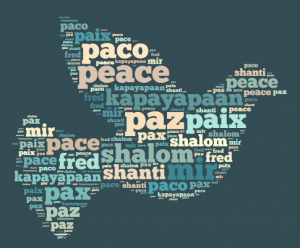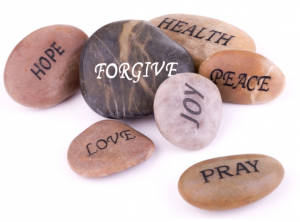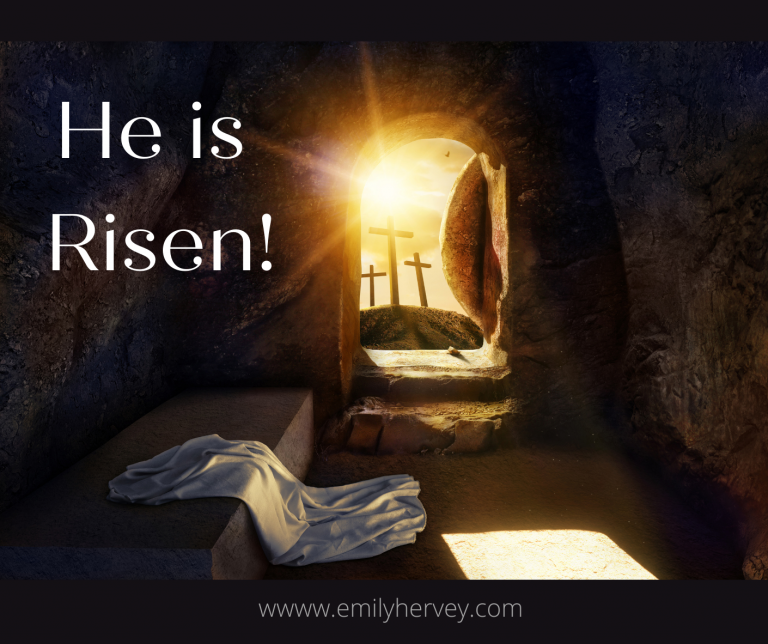When I look at the news headlines, I almost always see accounts of discord and power struggles, which catch our attention because of our aversion to pain and conflict. The global history of wars speaks of the human tendency to seek power, yet there remains a deep desire to live in a place of peace. We celebrate peacemakers, even establishing a specific form of honor: the Nobel Peace Prize.
But the task of not only promoting but creating peace goes beyond the international heroes; it is a call to each of us to take action.
Jesus said:
“Blessed are the peacemakers, for they will be called sons of God.”
This is the only place in the Bible that the word “peacemaker” is used! So what does it mean to be one? It seems to go beyond being a peacekeeper, suggesting a more intentional approach to establishing peace.
The significance of this role is evident in the promised outcome: being called children of God. This may have come across as a strong statement to an audience that never addressed God as “Father” like we do today. While Jews in that era hoped God would send a political Messiah to bring freedom, the “Kingdom of God” introduced by Jesus was not centered on geographical dominion or control. Already we’ve read the encouragement toward the poor and meek in the Kingdom of God, not the rich and powerful.
God’s  peace surpasses the natural human concept that requires contentment between two parties or the resolution of difficult situations, whether on an individual or international level. The Hebrew word for peace, Shalom, speaks of completeness, wholeness, health, peace, welfare, safety, soundness, tranquility, prosperity, perfectness, fullness, rest, harmony, and the absence of agitation or discord (Strong’s Concordance). It is foundational as part of a lifestyle in communion with God.
peace surpasses the natural human concept that requires contentment between two parties or the resolution of difficult situations, whether on an individual or international level. The Hebrew word for peace, Shalom, speaks of completeness, wholeness, health, peace, welfare, safety, soundness, tranquility, prosperity, perfectness, fullness, rest, harmony, and the absence of agitation or discord (Strong’s Concordance). It is foundational as part of a lifestyle in communion with God.
Jesus, the Prince of Peace, brought peace in our relationship with God, as a way of interacting with others, and as a comfort in adversity.
Peace with God:
The precursor to being vessels of peace is the acceptance of the deepest form of relational peace possible, coming from reconciliation with God. Jesus made this possible by the atonement for our sin, allowing us to receive the Shalom of God. Completeness and fullness is not reached by our own capacities; only the mending of our hearts from the disease of sin and subsequent brokenness can allow us to experience such wholeness. Being at peace with God means daily accepting his forgiveness and redemption, allowing him to transform us as we learn to accept and enjoy the peace of being in his presence.
Peace with Others:
Making peace with others also requires forgiveness, this time on our part. Often this is very difficult after being deeply wounded. When we turn to God for help, he invites us to release any anger, bitterness, and hurt into his hands. Even when true reconciliation, which requires willingness and effort from both parties, is not possible, giving a relationship, with all its pain and flaws, back to God frees us from the cha in of bitterness. When his peace rules in our hearts, especially after being wronged, others will see it and recognize that it is not from this world.
in of bitterness. When his peace rules in our hearts, especially after being wronged, others will see it and recognize that it is not from this world.
Peace in Adversity:
Jesus commends peacemakers, then immediately blesses the persecuted. The Shalom of safety, soundness, and tranquility appears incongruous with the subsequent suffering of Christ and his disciples. How can a true “Prince of Peace” be nailed to a cross? Yet in his words of encouragement to his disciples before his crucifixion, Jesus states, “Peace I leave with you. My peace I give you. I give to you not as the world gives. Don’t be troubled or afraid” (John 14:27).
This statement is coupled with the promise of the Holy Spirit. Rather than a worldly form of superficial harmony, we are offered the Presence of God in our very being. Regardless of circumstances, when we surrender our trials to God his perfect peace can replace our doubts and fears.
It is in this context when our peace is clearly not from human instinct or natural capacities. The divine nature of such peace distinguishes us: we shall be called children of God.
Do you want God’s supernatural Shalom to saturate your relationships, emotions, thoughts, and struggles? He stands at the door of your heart and knocks. Welcome him to spend time with you, focus on his goodness, and receive his pure, forgiving, restoring love.



Good and comprehensive message for us now at Christmas time, as we often hear, “Peace on Earth”. This is a good definition of what that peace is all about.